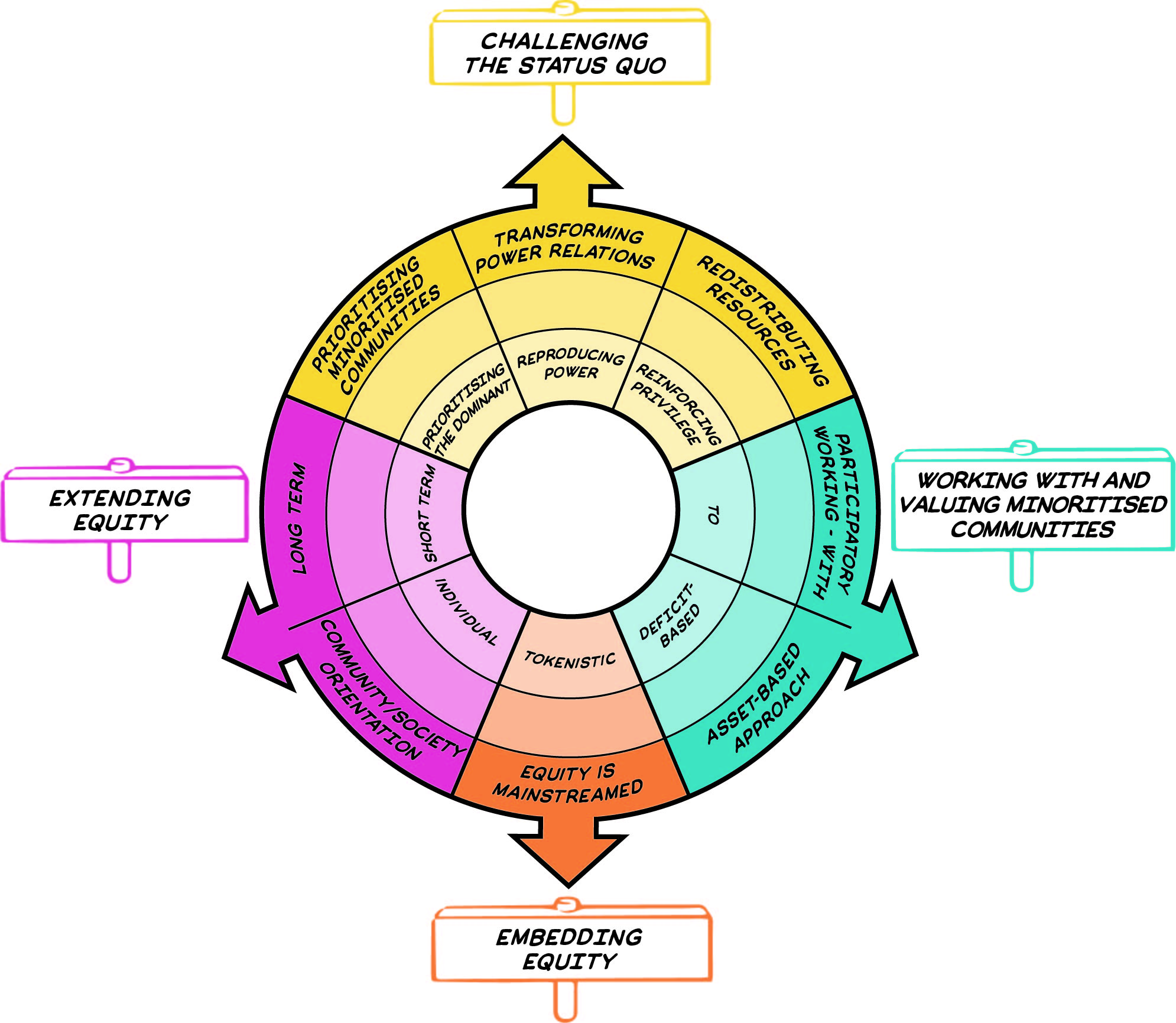Inequity is an important issue for schools. The Covid pandemic has in many ways exacerbated and surfaced the persistent and ongoing inequalities - from what resources (like free school meals, additional tutoring) were being provided and to whom, to whose needs appeared to matter most.
Inequalities impact students’ experiences, attainment, progression and wellbeing. Yet, many teachers have limited support and training to address the complexity of inequalities. As one of the primary school teachers we recently worked with said: “I looked at our inclusion policy and apart from one exception, equity isn’t really a focus. That made me think more than ever that maybe I’m not the only one who hadn’t given it enough consideration.”
At UCL Institute of Education, our research team has worked with teachers and other educators for nearly a decade on understanding and developing resources to support equitable practice. One of our developments, the Equity Compass, has recently been redeveloped to apply specifically to teachers.
More:
We believe that the compass will help primary and secondary teachers reflect on and develop their teaching through adopting a social justice mindset. And we have evidence to prove that it works: a group of primary school teachers who participated in the Primary Science Capital Project used the Equity Compass throughout the past academic year to develop more equitable teaching across all subjects. Around 93 per cent of the participating teachers felt that their understanding of equity-based teaching and learning had improved.
The Equity Compass highlights the importance of considering not just what you do, but how and why you do it. It’s a great way to reflect on your current teaching in relation to equitable practice, to identify what areas you might like to develop further and to evidence your progress towards more equitable practice.
How to embed the Equity Compass in your practice
So how does it work in practice? There are four key elements: challenge the status quo, work with and value minoritised communities, extend equity and embed equity.

Challenge the status quo
Teachers can do this by:
- transforming power relations by challenging injustices of all forms (eg, racism, sexism, ableism, class and LGBTQI+ prejudice, and so on) and creating opportunities for dialogue about power and privilege.
- prioritising minoritised communities by considering whose interests, needs and values drive teaching and the curriculum - those of the dominant groups (eg, school leadership, economy) or those of students from minoritised communities?
- redistributing resources by attending to how minoritised students are supported - and ensuring that opportunities are not predominantly available to those who are already more privileged (eg, extra opportunities for top set students).
Work with and value minoritised communities
Here, teachers should be:
- working in participatory ways with students, particularly those from minoritised communities, such as to co-design learning experiences.
- taking an asset-based approach and valuing a broad range of students’ knowledge and experiences, seeing students as what they know, have or are, rather than what they “lack”.
Extending and embedding equity
When it comes to embedding equity, educators need to ensure equity issues are everyone’s responsibility and not limited to special programmes or a few passionate individuals.
They can extend equity by making sure experiences are long term and consider how to support, not only individual student outcomes but also, outcomes for their families and their community.
Dr Spela Godec is a senior research fellow at the UCL Institute of Education working on the Youth Equity and STEM project and has focused on inequalities in science education across formal and informal settings for the past decade.
Dr Meghna Nag Chowdhuri is a research fellow at the UCL Institute of Education working on the Primary Science Capital Project






